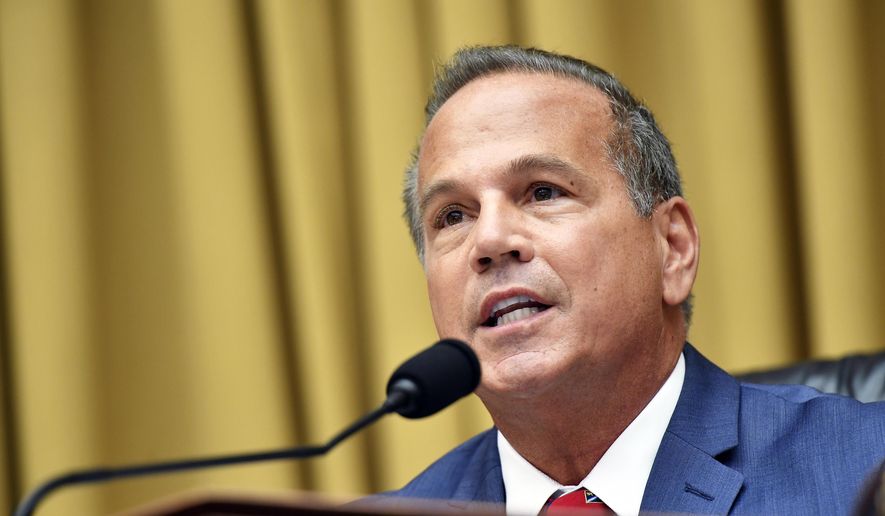The House antitrust panel’s top Democrat and top Republican said Friday they are working together on five new bills aiming to crack down on large technology companies such as Amazon, Apple, Facebook and Google.
Rep. David Cicilline, Rhode Island Democrat, and Rep. Ken Buck, Colorado Republican, unveiled a slew of new antitrust proposals that they sponsored along with their colleagues. The bills seek to empower the Justice Department and Federal Trade Commission to sue the large tech platforms, better police start-up acquisitions and route more funding toward those agencies by increasing merger filing fees, according to Mr. Buck’s office.
The bills also target the large tech platforms’ marketplaces by attempting to prevent alleged “self-preferencing” or the practice of favoring their products at the expense of competitors.
“Right now, unregulated tech monopolies have too much power over our economy,” Mr. Cicilline said in a statement. “They are in a unique position to pick winners and losers, destroy small businesses, raise prices on consumers, and put folks out of work. Our agenda will level the playing field and ensure the wealthiest, most powerful tech monopolies play by the same rules as the rest of us.”
Mr. Buck’s office said the bills also seek to empower state attorneys general to choose their venues for federal lawsuits against the companies. The bills attempt to make it easier for users to transfer data from allegedly dominant tech platforms to other tech platforms, per Mr. Buck’s team.
Mr. Cicilline pursued a legislative strategy of releasing a series of antitrust proposals rather than a large package because he wanted to make it more difficult for the tech lobby to intervene and disrupt his work, he previously told Axios.
The stack of antitrust proposals means that other pending antitrust legislation now has a more complicated path forward, particularly as the looming midterm elections will make overhauling antitrust laws a campaign issue.
The News Media Alliance, a coalition of news publishers including The Washington Times, said it hoped the antitrust panel would take new action in mid-June on legislation that aims to give news publishers the ability to better negotiate with large tech platforms.
The alliance lobbied in support of previous versions of the Journalism Competition and Preservation Act that have failed to make much progress and the most recent iterations proposed in March have yet to receive mark-ups by relevant committees in the House or Senate.
David Chavern, president of News Media Alliance, said the current digital market for news content is not working for anyone — whether large publications represented on his board or smaller outlets.
“The entire news industry — from all sources — is a rounding error compared to Google and Facebook and all publishers are squeezed and undervalued,” Mr. Chavern said in an email. “This [is] true of even the very biggest players who could get a compensation deal on their own. My Board would much prefer a vibrant market that accurately reflects the public’s growing interest in news content, even if that means facing new entrants and more competition.”
Amazon, Apple, Facebook, and Google each did not immediately answer requests for comment on lawmakers’ new antitrust proposals.
• Ryan Lovelace can be reached at rlovelace@washingtontimes.com.




Please read our comment policy before commenting.